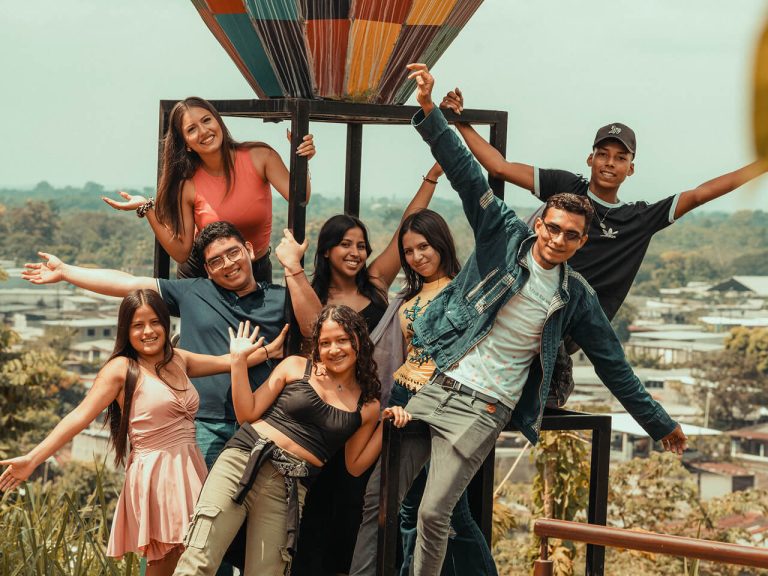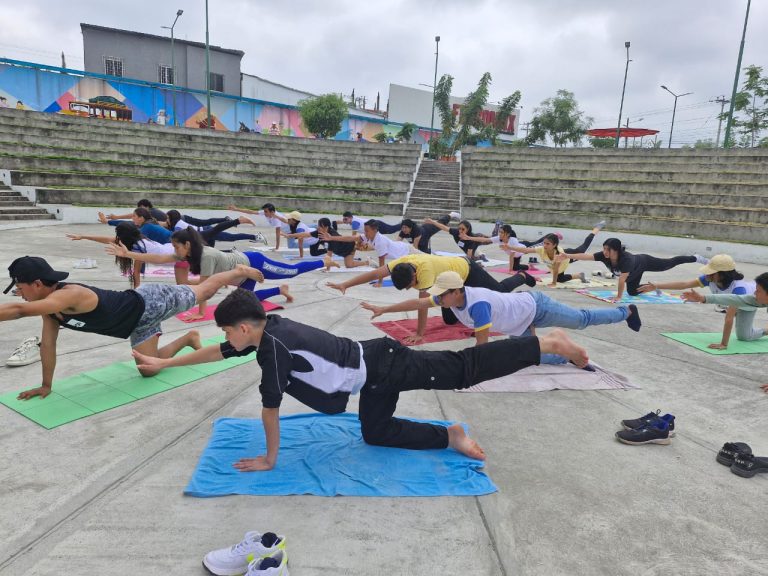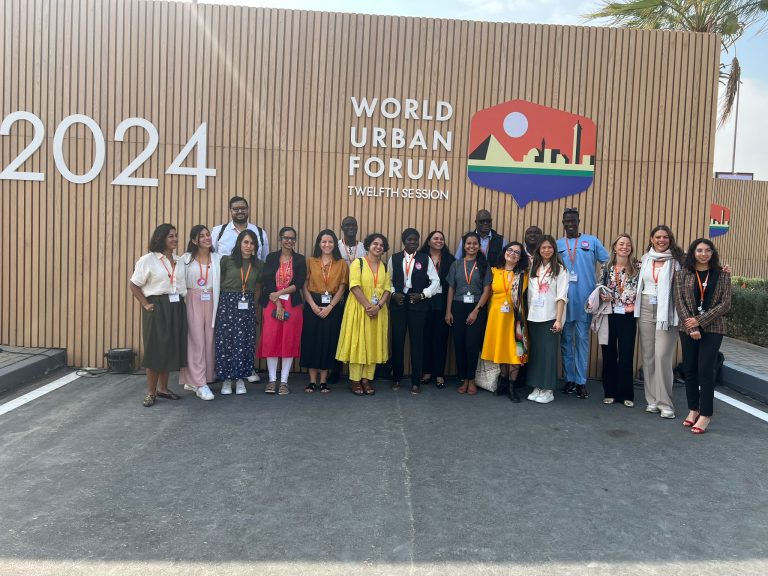During 2023, key stakeholders of Healthy Cities for Adolescents Phase II (HCA-II) refined the programme’s strategic goals and operating principles. Under this new framework, the programme makes a fundamental commitment aligned with Fondation Botnar’s wider strategic mission – to put adolescents at the centre in shaping cities that support their health and wellbeing.
This commitment called for a re-think of HCA-II grant-making to ensure that adolescents could be fully engaged in co-designing the projects funded under the programme.
Sarah McMillan, Team Leader for HCA-II, explains, ‘We recognised that our grant-making approach, much like typical grant-making, did not allow sufficient time or resource to meaningfully engage our primary stakeholders – adolescents – in the project design process.’
To address this problem, the existing grant mechanism was adjusted to provide seed funding for an initial needs assessment and co-design (NACD) phase, forming the basis for a larger project grant.
‘All our projects are committed to engaging adolescents and understanding their specific needs’, says the Team Leader. ‘But we wanted to go one step further. We wanted to provide dedicated resources at the outset for the needs assessment work, and bring adolescents and relevant city stakeholders together in the project design.’
The vision for the NACD phase is to engage diverse groups of adolescents in defining their health and wellbeing priorities in their cities, and then to bring these adolescents and relevant city stakeholders together to co-design project interventions that respond to those priorities. This also involves defining the role(s) that adolescents want to play in that process, giving them greater ownership and engagement in the future project.
The desired output of this phase is a fully co-designed project proposal and a clear consortium of partners committed to working together to deliver it. This proposal is then put before the HCA-II grant funding panel for a fuller project grant.
Lambros Pardale, Grants and Compliance Manager for HCA-II, explains ‘We were interested to see how this approach would work, and to understand if we could roll it out in other countries where we are looking to make new grants.’
Lab XXI, an Ecuadorian innovation lab, was selected as the lead partner to trial the NACD process in two cities in Ecuador, Riobamba and Quevedo:
‘We were excited to test this new process and push ourselves to develop more effective approaches to empower stakeholders from the beginning,’ shares Mateo Tobar, Director of Alliances and Business Development at Lab XXI. ‘We are deeply committed to pioneering design and fostering novel participatory processes that bridge the gap between the local community’s needs and funding opportunities.’
To deliver the NACD phase, Lab XXI worked in a consortium with the municipal government bodies in the two cities, the Ministry of Education, DATALAT (an Ecuadorian foundation promoting digital data and skills) and other civil society partners.
Mateo Tobar adds, ‘In Ecuador’s NACD phase, we used a participatory action research approach. This method empowered adolescents to actively engage in identifying, analysing and prioritising issues in their cities. LAB XXI facilitated the formation of two adolescent groups, one per city, and the creation of meaningful spaces for adolescent participation. This allowed them to take part directly and to involve peers within their circles. The success of the NACD phase hinged on adolescents and youth as active action researchers, delving into the root causes of city challenges and co-designing the project’s Theory of Change with local stakeholders and government.’
Among the different approaches used to explore adolescents’ needs and priorities in their cities, Lab XXI adopted creative methodologies such as using a hip-hop song in Quevedo and Riobamba and murals (see the results from Quevedo and Riobamba), to help young people express themselves openly. This use of art is particularly valuable in eliciting the views of adolescents who may not be accustomed to expressing themselves through more formal media like interviews or surveys. These approaches empowered adolescents to create impactful communication tools, raising awareness about the challenges they face. Watch the hip-hip music videos below.
Laura Ostos, HCA-II Project Coordinator at LAB XXI, explains, ‘The NACD phase resulted in the creation of Raise Your Voice, a project that expects to turn Riobamba and Quevedo into safe, healthy and intercultural spaces for adolescents. The project focuses on training and learning, participation and advocacy, and mental health. It addresses core issues by enhancing educational environments, building advocacy networks, establishing safe spaces through arts and sports, and promoting digital tools for adolescent advocacy. With a collaborative consortium involving the public sector, academia, civil society and youth groups, the project will engage key partners for impactful change. Our commitment to put adolescents at the centre is also our best strategy to ensure the sustainability of our project locally and the construction of a shared vision for a brighter future in both cities.’
Lab XXI is currently finalising the full project proposal based on the NACD work. While the project design and the funding decision itself are yet to be confirmed, the HCA-II Global Team is confident that the NACD approach should be continued for future grants:
‘We are an adaptive programme, continually learning and pushing ourselves to be true to our programme principles and to achieving our desired impact’, says Sarah McMillan. ‘The collaboration with Lab XXI on this new NACD approach has been inspiring in many ways. We have been particularly excited to see the mobilisation of adolescents in the two cities, and their articulation of their needs and aspirations, which has informed the fuller project proposal. Of course, there are lessons learned and things we can improve in the process, but we believe this approach is one that we should replicate in our future grant-making under HCA-II.’
The selection process for NACD grants is currently underway for new HCA-II projects in India, Vietnam and Senegal.



